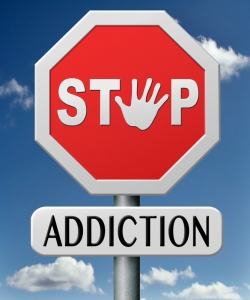For someone who works and has a family, an outpatient drug and alcohol treatment program give help while providing freedom. These programs are similar to residential (inpatient) treatment programs but offer a different environment. Outpatient programs are structured so the addict can maintain a regular commitment to work, education, and family. The attendee has the ability to return home after a day program or can receive treatment during the evening hours. Also, these programs are designed for an optimal level of privacy and anonymity.
Benefits of Outpatient Treatment
Clients do not have a secure and safe environment that isolates them from negative influences when attending outpatient drug and alcohol treatment. Once the session is over, the addict must return to his or her own environment, so attendees must be able to voluntarily restrain from use of alcohol and/or drugs. This requires much diligence, so severe addiction is not treated on an outpatient basis. However, there are numerous benefits to an outpatient treatment program. These include:
- Provide a support network for clients in the form of individual counseling, family counseling, and official support groups.
- Offer a strong support network of non-using peers and sponsors.
- Requires group therapy and support groups, such as NA and AA, that encourage social change in the addict’s life and foster long-term recovery.
- Focus on family support and involvement.
- Allow clients to automatically apply the lessons learned from outpatient treatment programs to daily experiences.
- Provide a set of core services that are essential to all intensive outpatient treatment (IOT) efforts.
 Group Counseling and Therapy
Group Counseling and Therapy
Several recent research studies confirm that group therapy is as effective as one-on-one counseling. Group counseling allows the drug and alcohol treatment facility to balance the cost of individual therapy. Additionally, this type of therapy supports IOT clients by establishing an environment that is supportive, offering structure and discipline, providing opportunities for development of communication and socialization experiences, and reinforces helpful ways to interact with others in a supportive and therapeutic atmosphere.
Most outpatient treatment programs offer varying types of groups during therapy. These include skills-development, psycho-educational, support, and interpersonal process groups. Far from rigid, these groups allow the addict to obtain jobs, acquire education, and attend recreational activities.

- Skills-development groups – These groups give clients the ability to learn new behaviors in the treatment setting through drug and alcohol refusal training (clients act out scenarios), relapse prevention techniques (analyze personal triggers and high-risk situations), assertiveness training (avoiding aggressive and passive behaviors), and stress management (identifying and alleviating stress).
- Psychoeducational groups – These groups offer the opportunity for clients to learn about the consequences of substance use and dependence through rational problem-solving mechanisms that alter abnormal thought patterns, relapse prevention training, and skills education.
- Support groups – These groups gather clients who are all in the same stage of recovery to learn pragmatic ways of altering emotions, negative thinking, and abnormal behaviors, resolving conflicts without violence or use of a substance, and relating better with others.
Interpersonal process groups – These groups are organized into the later stages of therapy, and they focus on a particular issue, such as sexual orientation, criminal offense, and history of physical and/or sexual abuse.
